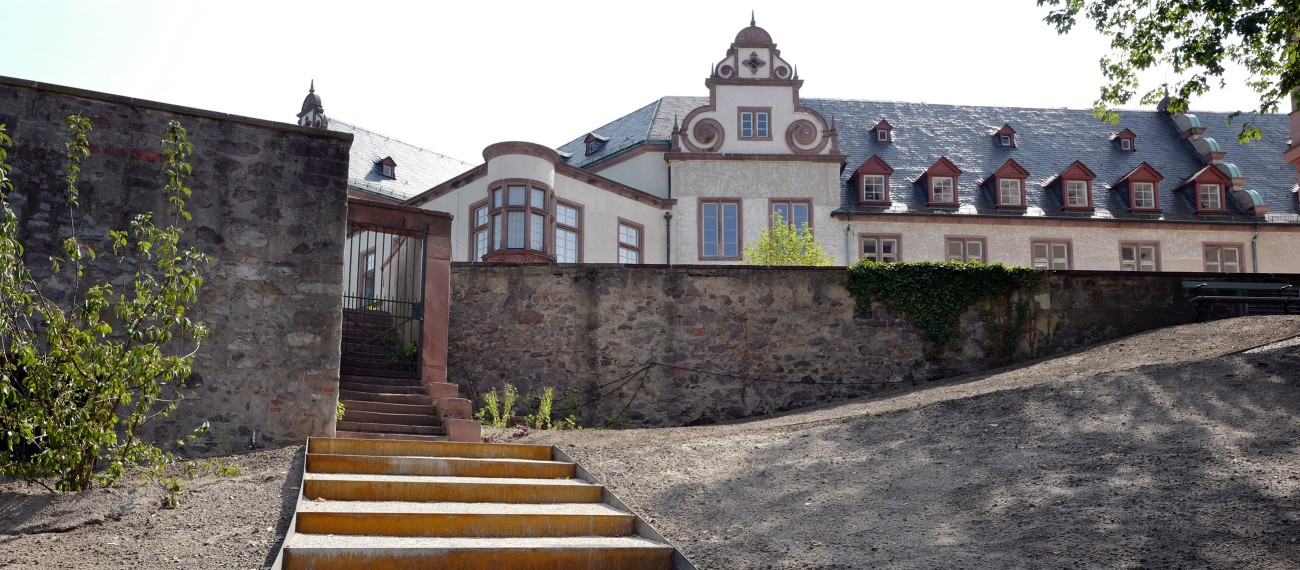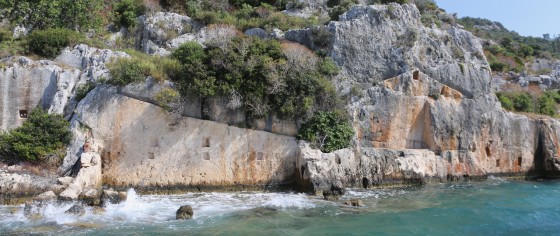The management alternates on a two-year basis between the sectional chairs of the institute.
Institute of History

Structure and Organisation
Picture: Claus Völker
Research and teaching within the Institute of History covers the time period from antiquity to modern history, divided into six separate (time) sections. Additionally, there is a special division focussing on history didactics, the research group "KoLT" and up until April 2023 the independent project group "Global-HOT". The management alternates on a two-year basis between the sectional chairs of the institute.
Ancient History at the Institute of History of the Technical University of Darmstadt is dedicated to Greek and Roman antiquity in research and teaching.
Interim professor: PD Dr. Alexander Meeus
The Middle Ages lasted from the 5th to the 15th century.
Our Medieval curriculum covers the entire medieval period, i.e. the Early, High and Late Middle Ages, with special emphasis on each team member's field of interest.
Additionally, we offer teaching in related complementary historical sciences including their digital aspect (especially palaeography, codicology and archival studies).
Chair: Prof. Dr. Gerrit Jasper Schenk
Die Forschung und Lehre am Fachgebiet Neuere Geschichte umfasst das gesamte 16.-20. Jahrhundert. Ein besonderer Schwerpunkt liegt auf der Stadt- und Umweltgeschichte.
Die Erforschung historischer Mensch-Natur Beziehungen steht in unserer Arbeit nicht im Gegensatz zur Erforschung städtischer Geschichte. Vielmehr verstehen wir die beiden Schwerpunkte des Fachgebiets als zwei sich ergänzende und wechselseitig beeinflussende Forschungsfelder.
Chair: Prof. Dr. Dieter Schott
In teaching, we offer courses on the three periods of the European modern era:
- Early Modern History (16th to 18th centuries),
- Modern History (19th to early 20th century) and
- Contemporary History (20th century).
Our research focuses on the following:
Corruption and patronage, environmental history, history of infrastructures, European history since the 18th century with a focus on Germany and France.
Chair: Prof. Dr. Jens Ivo Engels
Contrary to what is still widely believed, the history of technology is not simply the history of inventors or of artifacts, nor is it the history of the immanent reconstruction of technical developments. Rather, it describes and analyses the development, diffusion and use of technology. In a nutshell, it describes technological change, and how that change relates to political, economic, social and cultural developments.
Life without technology is not possible. Modernity in particular is essentially shaped by technology. The history of technology examines, among others, change brought about by technology in the world of work, in communication, or the importance of emotions for man’s acceptance or his/her use of technology – to mention only a few examples. Thus, the history of technology contributes to the understanding of our current technological culture.
Professor for History of Technology: Prof. Dr. Mikael Hård
Chair: Prof. Dr. Martina Heßler
Interim professor: PD Dr. Désirée Schauz
The Chair of Humanities Data Science and Methodology works at the intersection of historical research, oral history, digital cultural heritage and the digital humanities.
Our interdisciplinary research asks how digital methods can help us to understand more about the past and the uses of the past in the present and future. Our research also addresses the benefits and limits of using data-driven, multimodal and algorythmic research methods to study the past.
Head: Prof. Dr. Julianne Nyhan
Head: Prof. Dr. Kevin Liggieri
All sections of the institute participate in the education of history teachers. The History Didactics section serves as a clearing-house for all initiatives in this area throughout the institute, especially in the study programme.
Head: Dr. Detlev Mares
The project, A Global History of Technology (GLOBAL-HOT), investigates the fate of technologies that circulated in various parts of the world from 1850 to 2000. Its researchers also investigate the persistent use of indigenous technologies along with globalized ones, as well as the emergence of hybrid solutions. Our goal is to increase our understanding of the relationships between the development and use of technologies in Europe and North America on the one hand and the so-called Global South on the other.
Project Leader: Prof. em. Dr. Mikael Hård
Contact
Institut für Geschichte
I
geschichte-gd@pg.tu-...
work +49 6151 16-57312
Work
S3|12 405
Residenzschloss 1
64283
Darmstadt
We would like to customise the information and usability of this website to your preferences and needs.
To this end, we use so-called cookies. Please choose which cookies you would like to enable when visiting our webpages.
Some of these cookies are required to load and correctly display this website on your device.
These are strictly necessary or essential cookies and cannot be deselected.
The preferences cookie saves your language setting, while the statistics cookie regulates
how the open-source statistical software “Matomo” analyses your visits to and activities on our website.
For more information about cookies we use, please refer to our
privacy policy.






